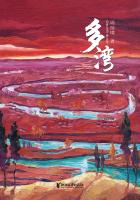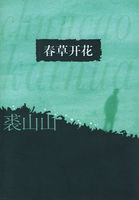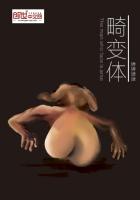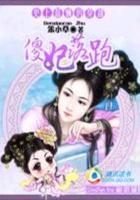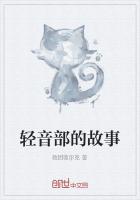The voyage up the higher part of the river was soon completed.Theweather got rainy;but the passengers,comfortably sheltered in the launch’s cabin,suffered no inconvenience from the torrents,which were not at all unusual at this season.The Queen and Czar met with neither rapids nor shallows,and the current was not strong enough to slow her much.
The shores of the Orange River still showed the same lovely scenery.Forests of perfumebearing trees followed one another,and all the birds in the country seemed to dwell among their branches.Here and there were groups of trees belonging to the Proteaceae family,particularly the wagenboom,whose wood is reddish,and veined like marble,producing a strange effect with its deep blue leaves and large pale yellow flowers—then the zwartebark,a tree with a black bark,and the kairees,with its dark green foliage.Thickets extended for miles beyond the river’s banks,which were everywhere overhung by weeping willows.Here and there large cleared spaces came into view.They were vast plains covered with the colocynth,or bitter apple,interspersed with the sugar bark,or honey-bearing protea,from which little singing birds,called by the Dutch colonists Suikervogel,flew in great numbers.
The feathered world offered a wide variety of many various specimens unknown to Europe.The bushman pointed out several to Sir John Murray,who was an enthusiastic sportsman.A sort of intimacy soon sprang up between the Englishman and Mokoum,to whom the former,in fulfilment of Colonel Everest’s promise,gave an excellent long-range rifle.Impossible to describe the bushman’s satisfaction when he found himself possessor of this splendid weapon.
The two sportsmen soon understood one another.Distinguished as a lover of science,Sir John Murray had a reputation as a fox-hunter in Scotland.He would listen to the bushman’s stories with interest,nay,with envy—his eyes sparkled when the hunter pointed out the wild cattle under the trees;the groups of fifteen or twenty giraffes;the buffaloes,eighteen hands high,with black spiral horns;further away,gnus;herds of large fallow deer;and everywhere,in the thickest parts of the forest as in the most open plains,the numberless varieties of antelope which swarm in Southern Africa,the bastard chamois,the gemsbok,the springbok,the gazelle.Here was enough to arouse a sportsman’s instinct;and how could fox-hunting in Scotland rival the exploits of those who hunted such game?
Sir John Murray’s companions were less excited by the sight of these magnificent specimens.William Emery studied his colleagues attentively,and tried to read their real characters under their cold exterior.Colonel Everest and Matthew Strux were both of about the same age,and equally reserved and formal.They conversed with a calculated coolness of manner which would make one think every morning they had never met before.It was not to be hoped and expected that any intimacy could ever be established between these two important personages.Two icicles,formed side by side,end by sticking together,but never two savants when they both occupy a high position in the world of science.
Nicolas Palander,at fifty-five,was one of those men who were never young and who never grow old.The astronomer of Helsingfors,constantly absorbed in calculations,might be an admirably organised machine—a sort of abacus or calculating machine.Attached to the Anglo-Russian Commission in the capacity of mathematician,this savant was one of those‘prodigys’who can multiply five figures by five in his head without difficulty.
Michael Zorn,in age,disposition and good humour,more nearly resembled William Emery.His amiable qualities did not prevent his being an astronomer of great merit,and he already enjoyed a high reputation.The discoveries made by him and under his direction at the Kiew Observatory with reference to the Great Nebula in Andromeda had made a great impression on learned Europe.His modesty equalled his indisputable merit,and he always kept himself in the background.
William Emery and Michel Zorn were born to be friends.The same tastes,the same ambitions,were common to both.They were generally conversing together,while Colonel Everest and Matthew Strux were coldly watching one another,Palander was mentally extracting cube roots without bestowing a glance on the beautiful prospect before him,and Sir John Murray and the bushman were planning forays into the forests and their inhabitants.
This voyage along the upper part of the Orange River was marked by no incident whatever.Sometimes the granite cliffs which confined the winding bed of the river seemed to bar all further advance.Sometimes,too,the wooded islets in mid-stream made it uncertain which course to take.But the bushman seemed never at a loss,and the launch always chose the right course,and found a way through the rocky cliffs which seemed to encircle her.The helmsman never once repented having followed Mokoum’s pilotage.
In four days the vessel had run the two hundred and forty miles which separate the cataracts of Morgheda from the Kuruman,one of the affluents which pass the town of Lattakou,which Colonel Everest’s expedition was anxious to reach.Thirty leagues above the falls the river formed an angle,and leaving its general direction,which is east and west,it turned south-east and cut off the acute angle which Cape Colony makes to the north.There it turned north-east,and lost itself in the wooded districts of the Transvaal Republic.
It was on 5th February,early in the morning,and in a shower of rain,that the launch reached Klaarwater,a Hottentot village,near which the Kuruman flows into the Orange.Colonel Everest did not want to lose a moment,and quickly steamed past the few Boschjesman cabins of which the village consisted,and began to ascend the current of the new affluent.This rapid current,the passengers of the Queen and Czar noticed,was due to a peculiarity of the stream.The Kuruman,which was very wide at its source,grew narrower as it flowed onward,because of the action of the sunshine.But in this season,swollen by the rains,and fed by the waters of another tributary-the Moschona—it was both deep and rapid.The fire was accordingly heaped up in the furnace,and the launch ascended the Kuruman at three miles an hour.
As they steamed along,the bushman pointed out several hippopotami in the water.These great pachyderms,called by the Cape Dutchmen the sea-cows,are heavy brutes,from eight to ten feet long,but quite inoffensive.The scream of the steam whistle and the thud of the screw frightened them at once.Sir John Murray was anxious to try the effect of his explosive bullets upon them;but the bushman assured him he would find plenty in the streams to the northward,and persuaded him to wait for a more favourable opportunity.
They covered the hundred and fifty miles which separate the mouth of the Kuruman from the station at Lattakou in fifty hours;on 7th February,at three in the afternoon,they reached their destination.
When the steam launch was moored to the steep bank which served as a quay,a man of about fifty,with a serious air but a pleasant expression,went on board and shook hands with William Emery.The astronomer introduced the new comer to his companions as the Rev.Thomas Dale,of the London Missionary Society,chaplain of the station at Lattakou.
The others bowed to the Rev.Thomas Dale,who made them welcome,and offered them his services.
The town of Lattakou,or rather the bamlet of that name,was the missionary station farthest northward from the Cape.It was divided into old and new Lattakou.The old Town,now almost entirely abandoned where the Queen and Czar stopped,boasted at the beginning of the century twelve thousand inhabitants,who have since migrated to the northeast.This fallen town has been replaced by new Lattakou,built at no great distance,on a plain formerly covered with acacia trees.
New Lattakou,whither the Europeans were conducted by the missionary,consisted of about forty groups of buildings,with five or six thousand inhabitants belonging to the great Bechuana tribe.
It was here that David Livingstone stayed for three months in 1840,before undertaking his first journey to the Zambezi—a journey which was to carry the illustrious traveller across the whole of Central Africa,from the Bay of Loanda to the Congo,as far as the port of Kilmane on the Mozambique coast.
When they reached new Lattakou,Colonel Everest put into the hands of the chaplain a letter from Dr.Livingstone,recommending the Anglo-Russian Commission to his friends in South Africa.Thomas Dale read this letter with great pleasure;then he returned it to Colonel Everest,saying it might prove to be very useful to him in the course of his travels,the name of David Livingstone being known and honoured throughout that part of Africa.
The members of the Commission were lodged at the mission,a sort of barrack built on a height,and surrounded by an impenetrable hedge,like a fortification.The Europeans found themselves much more comfortable here than if they had taken up their quarters among the Bechuanas.Not that the dwellings of the latter are either dirty or neglected;on the contrary,their floors,of a very smooth clay,are perfectly free from dust:their roofs,of long thatch,are impenetrable by the rain;but after all,these houses are nothing but huts,entered by a round hole,through which a man can creep only with difficulty.But inside these huts they live communally,and close contact with these Bechuanas could not be very agreeable.
The chief of the tribe,who lived at Lattakou,was a certain Moulibahan;he thought it his duty to call upon the Europeans and present his respects.Moulibahan was fine-looking man,with neither the thick lips nor the flat nose of the Negro;he was better made than most Hottentots.He wore a cloak of skins very neatly sewn together,and an apron,which they call in the country pukoje.He had a leather cap on his head,and oxhide sandals on his feet.On his arms he wore ivory rings;from his ears hung a strip of copper four inches long,at once an earring and an amulet.Above his cape rose the tail of an antelope;his hunting-stick bore a bunch of small black ostrich feathers.It was impossible to guess the natural colour of this Bechuana chief,so thick was the layer of ochre which covered him from head to foot.Several cuts in the thigh,which left indelible marks,indicated the number of enemies he had slain.
The chief,quite as grave as Matthew Strux himself,walked up to the Europeans and grasped each of them in succession by the nose.The Russians took this quite seriously;the English were rather reluctant.However,according to African custom,this was a solemn undertaking to fulfil the duties of hospitality towards the Europeans.
When the ceremony was concluded,Moulibahan retired without having uttered a word.
‘Now that we are naturalised Bechuanas,’said Colonel Everest,‘let’s begin our operations without losing a day,or even an hour.’
Not a day,not an hour,was lost,and yet—so much care and attention to details does such an expedition demand—the commission could not start before the first week in March.This was,indeed,the period assigned by Colonel Everest.At this epoch the rainy season is over,and the water preserved in the cracks in the soil is invaluable to the travellers of the desert.
The start was fixed for 2nd March,and on that date the caravan,placed under Mokoum’s orders,was ready.The Europeans bade farewell to the missionaries at Lattakou,and left the town at seven in the morning.
‘Where are we going now,Colonel?’asked William Emery,as the caravan left the last of the houses behind.
‘Straight before us,Mr.Emery,’replied the Colonel,‘till we’ve found a convenient base for our operations.’
By eight the caravan had left the low hills,covered with stunted bushes,which surrounded Lattakou.Immediately before them lay the desert,with its dangers,its chances,and its fatigues.

